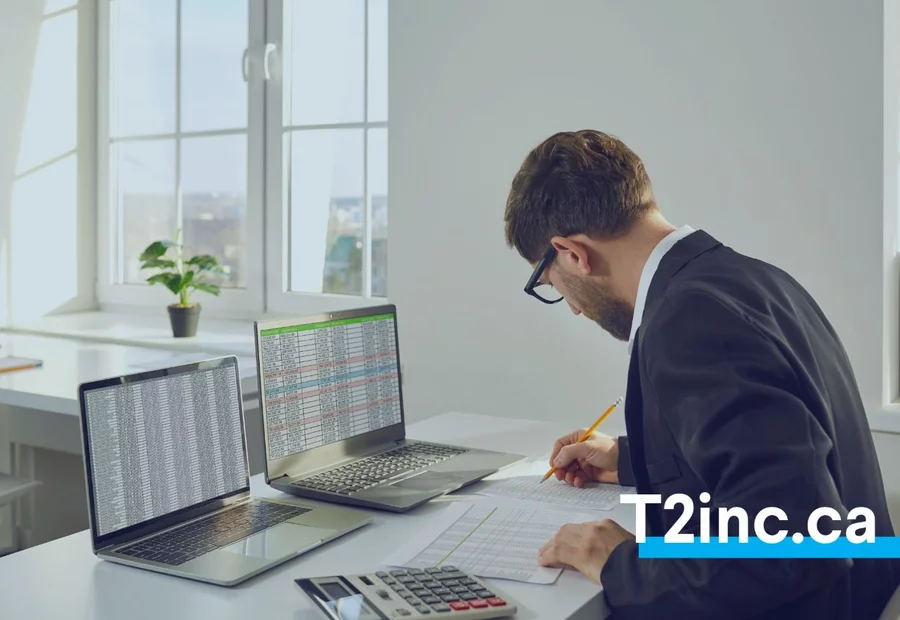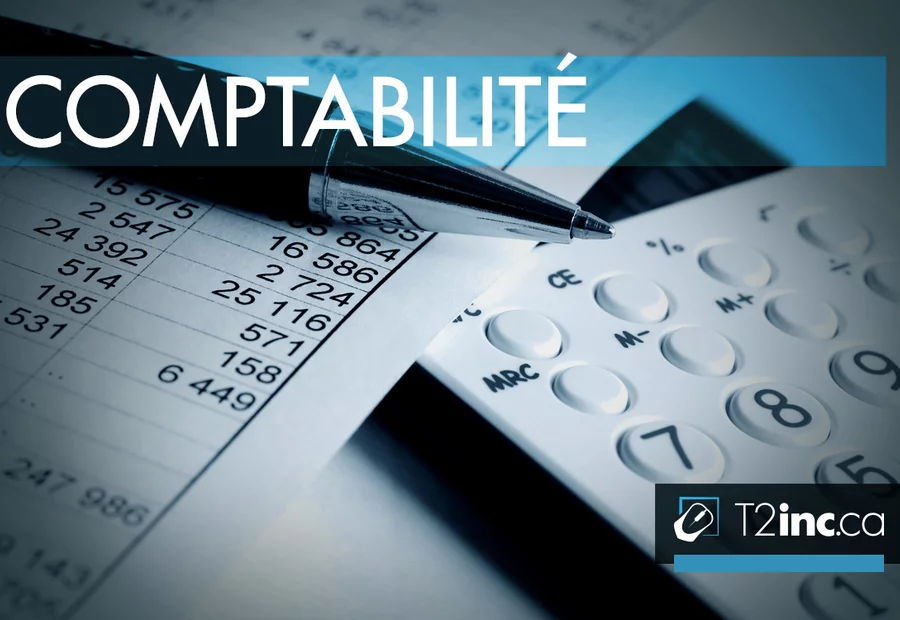How much does a corporate tax professional cost?

Incorporated companies in Canada must navigate numerous tax obligations: corporate income tax returns (T2, CO-17), compliance with the CRA, dividend payments, tax planning, and more. For many entrepreneurs, professional tax preparation services offer a way to save time, reduce tax liability, and avoid costly errors when filing returns.
Whether you work with a CPA, a certified tax preparer, or use tax software, one question often arises: how much does a tax specialist cost?
In this article, you’ll find out how much these services typically cost across Canada, which billing models are most common, what factors influence fees, and how small businesses can manage costs efficiently — especially when dealing with complex tax matters.
What is the average cost of a tax specialist?
Tax specialists’ fees vary significantly depending on the business. They are influenced by the complexity of your tax situation, the type of services required, and how the professional charges for their work. As a general rule, an incorporated business can expect to pay between $500 and $2,500 per year, depending on the scope of the tax services provided.
Some professionals charge by the hour, while others offer annual flat-fee packages or case-by-case pricing. Here's an overview of the most common models.
Flat-rate invoicing
Flat-rate billing is an increasingly popular model among tax professionals who work with small and medium-sized businesses. It involves a fixed price for a clearly defined set of services, often on an annual basis.
For example, a basic package may include:
- Corporate tax return (T2, CO-17 if in Quebec)
- A tax consultation session
- Support for correspondence with tax authorities
In this case, prices typically range from $700 to $1,500, depending on the volume of transactions and the company structure. This type of billing is popular with entrepreneurs who want to avoid unpleasant surprises and plan their tax budget in advance.
Case-by-case invoicing
Some tax professionals prefer a custom approach. Case-based billing means pricing is determined based on the specific mandate: tax reorganization, a written opinion, estate planning, or handling a dispute with the CRA.
This model is particularly suited to occasional or complex needs, where an in-depth analysis is required. Fees can vary widely, from a few hundred to several thousand dollars, depending on the nature and complexity of the work.
Hourly billing
Finally, some professionals use an hourly billing model, especially when acting as ad hoc consultants or advising on specific tax issues. Hourly rates for tax professionals generally range between $125 and $350, depending on their expertise, specialization, and geographic location.
While this model can be harder to predict in terms of total cost, it can be cost-effective for short-term or highly targeted engagements, such as:
- A request for a second tax opinion;
- Isolated strategic consulting;
- Assistance in the event of a tax audit.
What drives the cost of tax services?
Hiring a tax professional comes with a cost, but this cost is rarely arbitrary. Fees reflect not just the time invested, but more importantly, the strategic value of the tax expertise provided. Understanding what affects pricing helps you determine whether a service is justified... or not.
Two main factors influence tax service fees: the complexity of your business and the scope of services provided.
Type of business and level of complexity
The more structured your company is, the more complex your tax situation becomes. A corporation with multiple shareholders, diversified revenue streams, or international operations will likely require:
- More detailed tax filings;
- More complex calculations (dividends, deferrals, rollovers);
- Greater risk of error or omission.
In contrast, an inactive corporate or newly incorporated business generally requires less intervention, which is reflected in the price.
In short, the cost of tax services increases in proportion to the complexity of your business structure and the number of elements to be analyzed.
Included services (corporate tax returns, advice, accounting)
Fees also vary depending on which services are included in the engagement. A tax specialist may provide basic tax filing only, or they may offer comprehensive support, including:
- Annual tax planning (e.g., choosing between salary and dividends);
- Optimization of available tax deductions and credits;
- Representation in case of a CRA or Revenu Québec audit;
- Coordination with your accountant or internal finance team.
The more services included and the more tailored they are, the greater the value — but also the higher the fee.
Before comparing professionals based on price, it’s essential to understand exactly what’s included. Two tax specialists may charge very different rates for very different levels of support.

How can small businesses reduce the fees charged by a tax expert?
It is entirely possible to reduce a tax professional’s fees without compromising service quality. As a business owner, there are a few things you can do to streamline the process, minimize unnecessary work, and reduce extra charges.
Here are three practical ways to lower your tax service costs while staying well supported.
How to prepare your documents to reduce the cost of a tax specialist?
Tax specialists are more efficient when the information you provide is organized, clear, and complete. Incomplete or disorganized documentation, or data provided in separate stages, can require additional follow-ups, and thus lead to higher fees.
To avoid this:
- File your supporting documents (invoices, statements, contracts);
- Provide financial statements if available;
- Respond promptly to additional requests.
Being well prepared can significantly reduce billable hours and accelerate the completion of your tax return.
Why avoid last-minute tax requests?
Last-minute tax requests, especially near filing deadlines, can lead to extra charges. When a tax specialist must reorganize their schedule to prioritize your file, this added pressure may result in higher billing.
To avoid this:
- Make an appointment as soon as you have your documents in hand;
- Avoid waiting until the last minute for tax returns;
- Plan ahead to review your tax situation.
Tax work rewards those who are proactive rather than reactive.
Offsetting the cost through corporate tax savings
Beyond reducing fees directly, it’s essential to view tax services as a way to generate long-term financial benefits. With strategic planning, a tax expert can help you:
- Structure your shareholder compensation efficiently;
- Access credits and deductions you may not have considered;
- Avoid errors or penalties that could lead to major financial consequences
In this sense, tax services are often a profitable investment, especially when the costs are offset by the tax savings generated.
Work with corporate tax specialists dedicated to Canadian SMEs
At T2inc.ca, we understand that business owners are looking for simple, fast, and reliable tax solutions. That’s why our team is made up of tax accountants specializing in Canadian corporate tax, with services tailored to the realities of small and medium-sized businesses.
Our main focus: the preparation of federal T2 tax returns and provincial CO-17 returns (for businesses based in Quebec). With our fully online platform, optimized tools, and dedicated team, we’re able to offer highly competitive rates while maintaining a high level of accuracy and compliance.
For businesses with more advanced needs — such as tax planning, litigation, or complex reorganizations — we collaborate with trusted partners selected for their expertise in corporate taxation. This allows us to support our clients in all fiscal matters, whether simple or complex.
Whether you’re running a start-up or an established business, our team is committed to offering the most effective, tailored solution for your tax needs, helping you save time, money, and unnecessary stress.
FAQ - Frequently asked questions about the cost of a tax specialist
Is hiring a tax specialist mandatory for an incorporated business?
No, it is not legally required. However, working with a tax professional is strongly recommended to ensure compliance, avoid mistakes, and optimize your corporate tax filings (T2, CO-17).
What is the average cost of filing T2 and CO-17 tax returns?
Filing corporate tax returns typically costs between $500 and $1,200, depending on the complexity of your business, the volume of activity, and the services included. These amounts may vary depending on your situation, and the estimates provided here are for guidance only.
Are tax specialist fees deductible for businesses?
Yes. Fees paid to a tax specialist for services related to business operations and tax management are generally deductible as business expenses for Canadian corporations.
Contact our experts
Have a question? Need help? Fill out our online form to get help from our experts.
Contact usNeed more help?
Contact us by filling out our form
Are you interested in our services, but would like more information before taking the plunge? Contact us today and one of our tax accountants will be in touch to help you.
At T2inc.ca, we're committed to helping business owners manage their company's tax affairs so they can grow their business.




